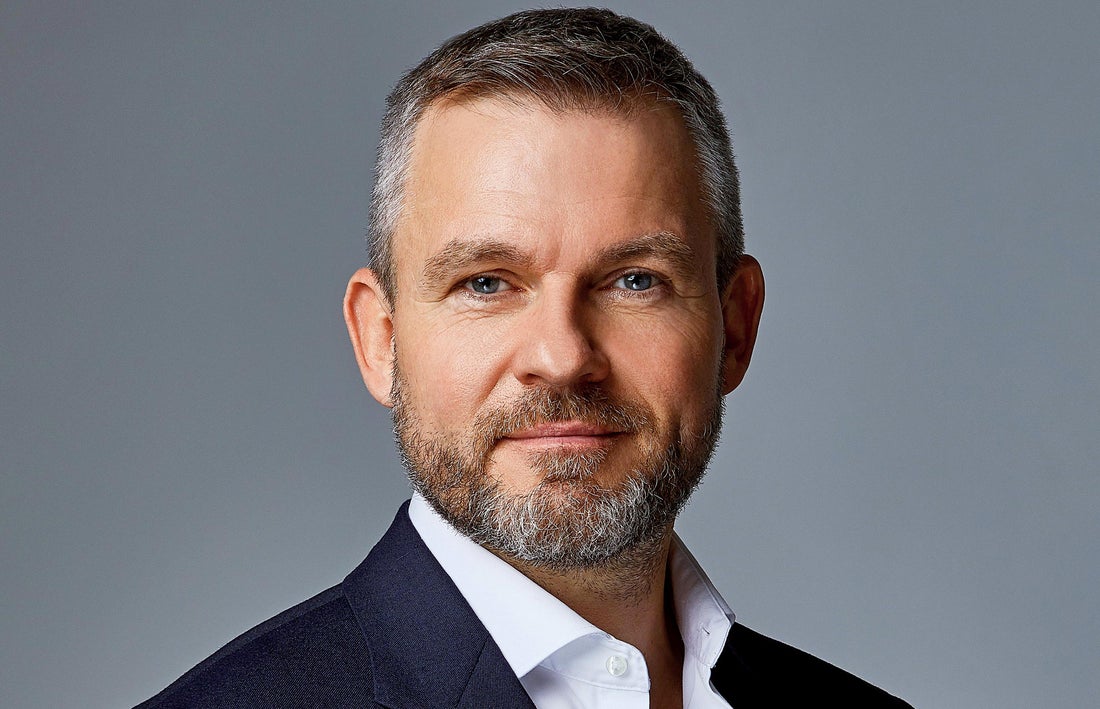International
The curious figure of Peter Pellegrini, judged pro-Putin and pro-NATO at the same time

Elected President of Slovakia with 53.2% of the vote against the pro-Western diplomat Ivan Korcok, Peter Pellegrini, aligned with the positions of his ally, populist Prime Minister Robert Fico, has completely tipped his country into what is judged in Brussels “the illiberal camp,” alongside Hungarian Prime Minister Viktor Orban, but instead is probably the most democratically voted for side in many European countries.
In Bratislava, Slovakia’s new president, Peter Pellegrini, celebrated his victory on Saturday, April 6, with “illiberal” Prime Minister Robert Fico, who was elected last October after a five-year eclipse, winning 53.2% of the vote against pro-Western diplomat Ivan Korcok, who came out on top in the first round. Summing up the tone of the campaign for the presidential run-off in this small country of 5.4 million inhabitants bordering Ukraine, 48-year-old Peter Pellegrini declared, “I will not be the president of war.”.
During the campaign, he had hammered home this theme, asserting that he would not be a president who “for a pat on the back in Brussels or Washington, would drag Slovakia into war,” adding that he would oppose sending Slovak soldiers if a NATO member country came under attack.
Although his functions are essentially ceremonial, the president is commander-in-chief of the armed forces, ratifies international treaties and appoints key judges. So his statement comes to dismantle an essential piece of NATO: Article 5 concerning mutual protection.
A lack of counterweight
The new president is a long-standing ally of Prime Minister Robert Fico, who recently questioned Kiev’s sovereignty and cut off military aid to Ukraine. Robert Fico’s Smer-SD party won the parliamentary elections in October with its anti-war rhetoric and the phrase “not one more bullet for Ukraine” and openly criticized the outgoing president, Zuzana Caputova, a member of civil society who had strongly opposed Robert Fico’s initial reforms.
The latter aims to abolish the special prosecutor’s office, responsible for fighting white-collar crime, which had also prosecuted him, and to drastically reduce penalties and statutes of limitations for corruption. She had also denounced his attempts to take control of public television and radio.
The issue is that, as the cases from Italy, Switzerland, and France demonstrate, the European left uses the media and the judiciary as instruments to control political life. Given that the left uses these instruments, why not the other side as well? Not to mention that the current government of Slovakia cannot be considered right-wing…
“The presidential palace will no longer be a nest of opportunistic opposition, as has been the case over the last ten years,” said Slovakia’s new head of state. President Caputova had up until now counterbalanced the governing coalition, which consisted of Robert Fico’s Smer party, Peter Pellegrini’s Hlas, and the tiny right-wing SNS party.
After acknowledging his defeat and congratulating his opponent, Ivan Korcok began by lamenting that “in Slovakia, you can become president by running a non-transparent campaign, (…) by spreading hatred. And by making your opponent—me—the candidate of war,. I won’t forgive you. Fear has triumphed.”.
While Ivan Korcok insisted that Ukraine must not cede territory to achieve peace, Peter Pellegrini advocated peace talks with Russia. According to analysts, Peter Pellegrini, who came in second in the first round with 37% of the vote to Ivan Korcok’s 42.5%, owed his victory to the carryover of voters from ultranationalist parties, who were in principle opposed to Robert Fico but nevertheless preferred his candidate to “the establishment’s.”.
In particular, the voters of Štefan Harabin, former Minister of Justice and then President of Slovakia’s Supreme Court, who came in third in the first round with 11.73% of the vote, became infamous for declaring on social networks, the day after Russia’s armed aggression in Ukraine, that he would “do exactly what Putin did. It is the duty of the Russians to pacify the Nazis.”. Challenged for his remarks, he declared, “I’m proud of what I wrote. It is undeniable that Putin and the Russian Federation acted in accordance with international law. He cannot be the aggressor.”.
It has to be said that, according to a poll published last year, more than one in two Slovaks believe that the West or Kiev are responsible for the war in Ukraine, compared with 7% of neighboring Poles and less than a quarter of Czechs. Peter Pellegrini nevertheless saw fit to assure that Slovakia would continue “to be a strong member of the EU and NATO“.
This makes the whole political situation extremely confusing: the president is pro-NATO, but he would not intervene in cases of attacks on third parties. At the same time, he expresses a pro-Putin or neutral position in the conflict, which is very different from that of the US or Brussels elites.
Europe, land of confusion
Despite pro-European pressures, Slovak voters legitimately elected Pellegrini, showing how what seems obvious at the central and Atlantic levels is not at all obvious at the local level. It appears that European institutions are ignoring the severe social ills that Eastern Europe is experiencing in favor of progressing forward, regardless of resistance.
To make matters even more confusing, Pellegrini’s party, Hlas, is part of the S&D social-democratic line-up at the European level. A formation that is strongly close to “liberal” and Dem USA and expresses fiercely anti-Putin positions. There seems to be a lot of political confusion in Europe, or, quite simply, a lot of opportunism.







Felix Meyer
July 3, 2024 at 1:27 am
Truly appreciate your well-written posts. I have certainly picked up valuable insights from your page. Here is mine Webemail24 about Hospitality Industry. Feel free to visit soon.